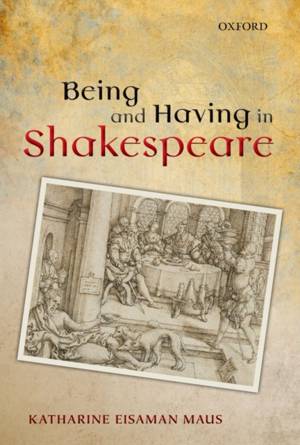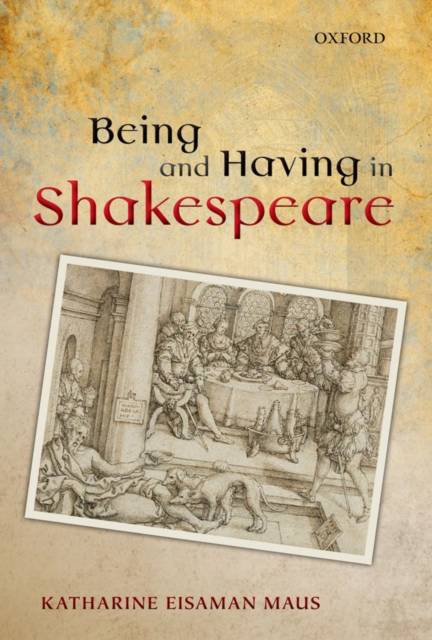
Bedankt voor het vertrouwen het afgelopen jaar! Om jou te bedanken bieden we GRATIS verzending (in België) aan op alles gedurende de hele maand januari.
- Afhalen na 1 uur in een winkel met voorraad
- Gratis thuislevering in België vanaf € 30
- Ruim aanbod met 7 miljoen producten
Bedankt voor het vertrouwen het afgelopen jaar! Om jou te bedanken bieden we GRATIS verzending (in België) aan op alles gedurende de hele maand januari.
- Afhalen na 1 uur in een winkel met voorraad
- Gratis thuislevering in België vanaf € 30
- Ruim aanbod met 7 miljoen producten
Zoeken
Being and Having in Shakespeare
Katharine (James Branch Cabell Professor of English, University
€ 41,95
+ 83 punten
Omschrijving
Being and Having in Shakespeare is a revised and expanded version of the 2010 Oxford Wells Shakespeare Lectures exploring the politics of authority and ownership in Shakespeare's plays.
Specificaties
Betrokkenen
- Auteur(s):
- Uitgeverij:
Inhoud
- Aantal bladzijden:
- 150
- Reeks:
Eigenschappen
- Productcode (EAN):
- 9780199698004
- Verschijningsdatum:
- 14/02/2013
- Uitvoering:
- Hardcover
- Afmetingen:
- 142 mm x 205 mm
- Gewicht:
- 272 g

Alleen bij Standaard Boekhandel
+ 83 punten op je klantenkaart van Standaard Boekhandel
Beoordelingen
We publiceren alleen reviews die voldoen aan de voorwaarden voor reviews. Bekijk onze voorwaarden voor reviews.









